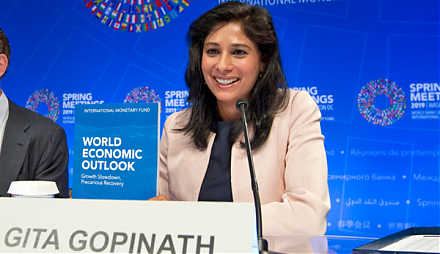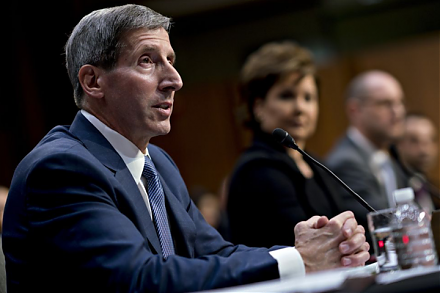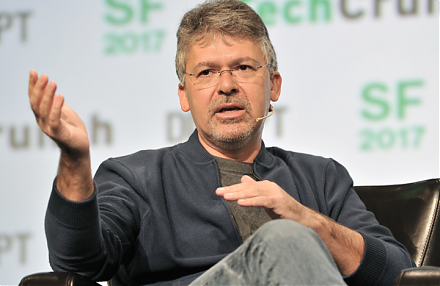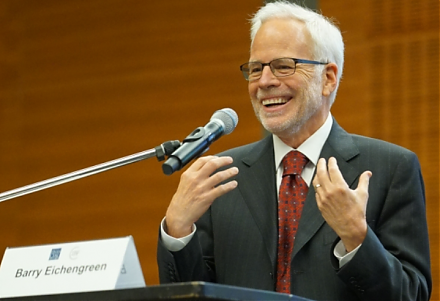

2019-10-17 08:35:00 Thu ET
federal reserve monetary policy treasury dollar employment inflation interest rate exchange rate macrofinance recession systemic risk economic growth central bank fomc greenback forward guidance euro capital global financial cycle credit cycle yield curve
The European Central Bank expects to further reduce negative interest rates with new quantitative government bond purchases. The ECB commits to further cutting negative interest rates to -0.5%. Also, the ECB refreshes radical monetary stimulus in the form of quantitative-easing (QE) government bond purchases. In particular, the ECB plans to buy €20 billion government bonds each month from November 2019 onwards. As the ECB president Mario Draghi expects to step down in late-October 2019, this key monetary stimulus helps fulfill his landmark legacy about a decade after the global financial crisis of 2008-2009.
Moreover, this strategic move serves as a defensive response to the recent dovish interest rate reductions in the U.S. and other countries such as India, New Zealand, and Thailand. In terms of global monetary policy coordination, these interest rate cuts anchor low and stable inflation expectations and exchange rates worldwide. The ECB can successfully assuage the concern and suspicion that most French and German central bank hawks share in recent times. Yet, the persistent negative interest rates and ad hoc QE government bond purchases draw direct criticisms from UBS and Deutsche Bank. The current monetary stimulus may or may not be sustainable in the long run.
If any of our AYA Analytica financial health memos (FHM), blog posts, ebooks, newsletters, and notifications etc, or any other form of online content curation, involves potential copyright concerns, please feel free to contact us at service@ayafintech.network so that we can remove relevant content in response to any such request within a reasonable time frame.
2019-10-09 16:46:00 Wednesday ET

IMF chief economist Gita Gopinath indicates that competitive currency devaluation may be an ineffective solution to improving export prospects. In the form
2018-03-19 10:37:00 Monday ET

Uber's autonomous car causes the first known pedestrian fatality from a driverless vehicle and thus sets off the alarm bell for artificial intelligence.
2019-08-12 07:30:00 Monday ET

Facebook reaches a $5 billion settlement with the Federal Trade Commission over Cambridge Analytica user privacy violations. The Federal Trade Commission (F
2019-02-21 12:37:00 Thursday ET

Apple shakes up senior leadership to initiate a new transition from iPhone revenue reliance to media and software services. These changes include the key pr
2019-05-23 10:33:00 Thursday ET

Berkeley professor and economist Barry Eichengreen reconciles the nominal and real interest rates to argue in favor of greater fiscal deficits. French econo
2020-02-19 14:35:00 Wednesday ET

The U.S. bank oligarchy has become bigger, more profitable, and more resistant to public regulation after the global financial crisis. Simon Johnson and